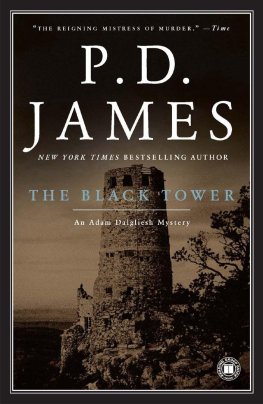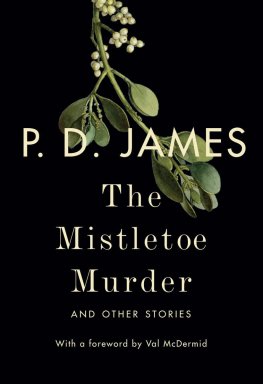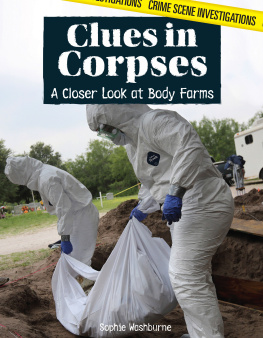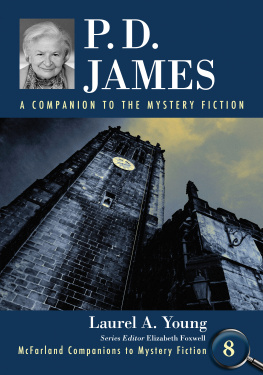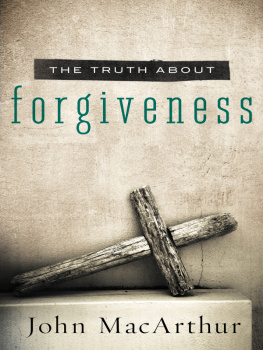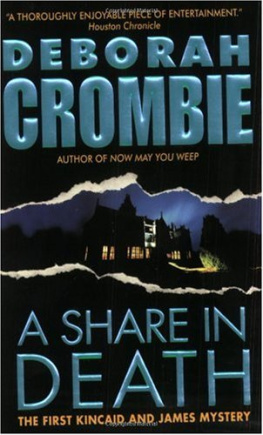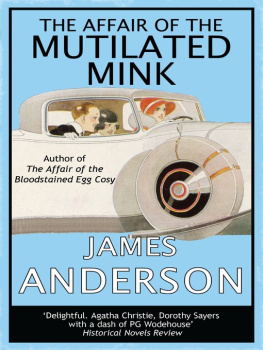P James - Unnatural Causes
Here you can read online P James - Unnatural Causes full text of the book (entire story) in english for free. Download pdf and epub, get meaning, cover and reviews about this ebook. genre: Detective and thriller. Description of the work, (preface) as well as reviews are available. Best literature library LitArk.com created for fans of good reading and offers a wide selection of genres:
Romance novel
Science fiction
Adventure
Detective
Science
History
Home and family
Prose
Art
Politics
Computer
Non-fiction
Religion
Business
Children
Humor
Choose a favorite category and find really read worthwhile books. Enjoy immersion in the world of imagination, feel the emotions of the characters or learn something new for yourself, make an fascinating discovery.

- Book:Unnatural Causes
- Author:
- Genre:
- Rating:4 / 5
- Favourites:Add to favourites
- Your mark:
- 80
- 1
- 2
- 3
- 4
- 5
Unnatural Causes: summary, description and annotation
We offer to read an annotation, description, summary or preface (depends on what the author of the book "Unnatural Causes" wrote himself). If you haven't found the necessary information about the book — write in the comments, we will try to find it.
Unnatural Causes — read online for free the complete book (whole text) full work
Below is the text of the book, divided by pages. System saving the place of the last page read, allows you to conveniently read the book "Unnatural Causes" online for free, without having to search again every time where you left off. Put a bookmark, and you can go to the page where you finished reading at any time.
Font size:
Interval:
Bookmark:

P D James
Unnatural Causes
The third book in the Inspector Adam Dalgliesh series, 1967
BOOK ONE. SUFFOLK
1
The corpse without hands lay in the bottom of a small sailing dinghy drifting just within sight of the Suffolk coast. It was the body of a middle-aged man, a dapper little cadaver, its shroud a dark pin-striped suit which fitted the narrow body as elegantly in death as it had in life. The handmade shoes still gleamed except for some scuffing of the toe caps, the silk tie was knotted under the prominent Adams apple. He had dressed with careful orthodoxy for the town, this hapless voyager; not for this lonely sea; nor for this death.
It was early afternoon in mid-October and the glazed eyes were turned upwards to a sky of surprising blue across which the light south-west wind was dragging a few torn rags of cloud. The wooden shell, without mast or rowlocks, bounced gently on the surge of the North Sea so that the head shifted and rolled as if in restless sleep. It had been an unremarkable face even in life, and death had given it nothing but a pitiful vacuity. The fair hair grew sparsely from a high, bumpy forehead; the nose was so narrow that the white ridge of bone looked as if it were about to pierce the flesh; the mouth, small and thin-lipped, had dropped open to reveal two prominent front teeth which gave the whole face the supercilious look of a dead hare.
The legs, still clamped in rigor, were wedged one each side of the centre-board case and the forearms had been placed resting on the thwart. Both hands had been taken off at the wrists. There had been little bleeding. On each forearm a trickle of blood had spun a black web between the stiff fair hairs and the thwart was stained as if it had been used as a chopping block. But that was all; the rest of the body and the boards of the dinghy were free of blood.
The right hand had been taken cleanly off and the curved end of the radius glistened white; but the left had been bungled and the jagged splinters of bone, needle sharp, stuck out from the receding flesh. Both jacket sleeves and shirt cuffs had been pulled up for the butchery and a pair of gold initialled cuff links dangled free, glinting as they slowly turned and were caught by the autumn sun.
The dinghy, its paintwork faded and peeling, drifted like a discarded toy on an almost empty sea. On the horizon the divided silhouette of a coaster was making her way down the Yarmouth Lanes; nothing else was in sight. About two oclock a black dot swooped across the sky towards the land, trailing its feathered tail, and the air was torn by the scream of engines. Then the roar faded and there was again no sound but the sucking of the water against the boat and the occasional cry of a gull.
Suddenly the dinghy rocked violently, then steadied itself and swung slowly round. As if sensing the strong tug of the onshore current, it began to move more purposefully. A black-headed gull, which had dropped lightly onto the prow and had perched there, rigid as a figurehead, rose with wild cries to circle above the body. Slowly, inexorably, the water dancing at the prow, the little boat bore its dreadful cargo towards the shore.
2
Just before two oclock on the afternoon of the same day Superintendent Adam Dalgliesh drove his Cooper Bristol gently onto the grass verge outside Blythburgh Church and, a minute later, passed through the north chantry-chapel door into the cold silvery whiteness of one of the loveliest church interiors in Suffolk. He was on his way to Monksmere Head just south of Dunwich to spend a ten-day autumn holiday with a spinster aunt, his only living relative, and this was his last stop on the way. He had started off from his City flat before London was stirring, and instead of taking the direct route to Monksmere through Ipswich, had struck north at Chelmsford to enter Suffolk at Sudbury. He had breakfasted at Long Melford and had then turned west through Lavenham to drive slowly and at will through the green and gold of this most unspoilt and unprettified of counties. His mood would have wholly matched the day if it werent for one persistent nagging worry. He had been deliberately putting off a personal decision until this holiday. Before he went back to London he must finally decide whether to ask Deborah Riscoe to marry him.
Irrationally, the decision would have been easier if he hadnt known so certainly what her answer would be. This threw upon him the whole responsibility for deciding whether to change the present satisfactory status quo (well, satisfactory for him anyway, and it could be argued surely that Deborah was happier now than she had been a year ago?) for a commitment which both of them, he suspected, would regard as irrevocable no matter what the outcome. There are few couples as unhappy as those who are too proud to admit their unhappiness. Some of the hazards he knew. He knew that she disliked and resented his job. This wasnt surprising nor, in itself, important. The job was his choice and he had never required anyones approval or encouragement. But it was a daunting prospect that every late duty, every emergency, might have to be preceded by an apologetic telephone call. As he walked to and fro under the marvellous cambered tie-beam roof and smelt the Anglican odour of wax polish, flowers and damp old hymn books, it came to him that he had got what he wanted at almost the precise moment of suspecting that he no longer wanted it. This experience is too common to cause an intelligent man lasting disappointment but it still has power to disconcert. It wasnt the loss of freedom that deterred him; the men who squealed most about that were usually the least free. Much more difficult to face was the loss of privacy. Even the loss of physical privacy was hard to accept. Running his fingers over the carved fifteenth-century lectern he tried to picture life in the Queenhithe flat with Deborah always there, no longer the eagerly awaited visitor but part of his life, the legal, certificated next of kin.
It had been a bad time at the Yard to be faced with personal problems. There had recently been a major reorganisation which had resulted in the inevitable disruption of loyalties and of routine, the expected crop of rumours and discontent. And there had been no relief from the pressure of work. Most of the senior officers were already working a fourteen-hour day. His last case, although successful, had been particularly tedious. A child had been murdered and the investigation had turned into a man hunt of the kind he most disliked and was temperamentally least suited for-a matter of dogged, persistent checking of facts carried on in a blaze of publicity and hindered by the fear and hysteria of the neighbourhood. The childs parents had fastened on him like drowning swimmers gulping for reassurance and hope and he could still feel the almost physical load of their sorrow and guilt. He had been required to be at once a comforter and father-confessor, avenger and judge. There was nothing new to him in this. He had felt no personal involvement in their grief, and this detachment had, as always, been his strength, as the anger and intense, outraged commitment of some of his colleagues, faced with the same crime, would have been theirs. But the strain of the case was still with him and it would take more than the winds of a Suffolk autumn to clean his mind of some images. No reasonable woman could have expected him to propose marriage in the middle of this investigation and Deborah had not done so. That he had found time and energy to finish his second book of verse a few days before the arrest was something which neither of them had mentioned. He had been appalled to recognise that even the exercise of a minor talent could be made the excuse for selfishness and inertia. He hadnt liked himself much recently, and it was perhaps sanguine to hope that this holiday could alter that.
Next pageFont size:
Interval:
Bookmark:
Similar books «Unnatural Causes»
Look at similar books to Unnatural Causes. We have selected literature similar in name and meaning in the hope of providing readers with more options to find new, interesting, not yet read works.
Discussion, reviews of the book Unnatural Causes and just readers' own opinions. Leave your comments, write what you think about the work, its meaning or the main characters. Specify what exactly you liked and what you didn't like, and why you think so.

